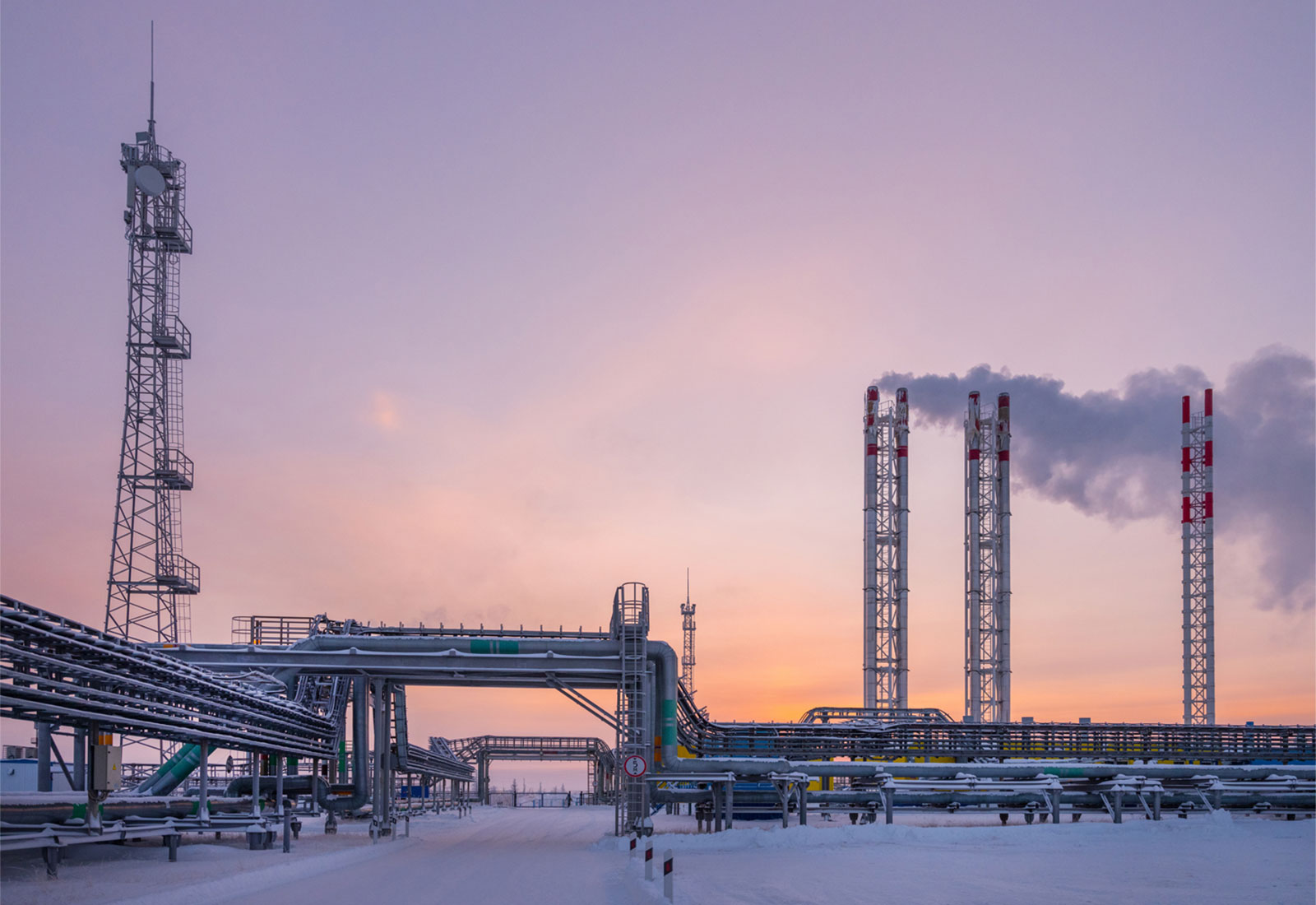On Thursday, as bombs fell on major cities in Ukraine and families sheltered in homes, subway stations, and parking garages, global energy prices spiked. For the first time since 2014, crude oil prices surged to over $100. The cost of European natural gas, which has already been at record highs since last summer, increased by almost 20 percent in a single day.
Russia’s invasion of Ukraine is a shock to a global fossil fuel system that has been on edge for the past year. Russia is the world’s largest natural gas and second-largest oil exporter, and provides 40 percent of Europe’s natural gas supply. (One expert wryly referred to the country as “one big gas station.”) If flows of oil and natural gas from the country are disrupted, the entire world could end up paying more for energy at a time when economic recovery from the coronavirus pandemic is increasing demand.
There are also questions about whether the war and resulting spike in energy prices will accelerate — or disrupt — the process of shifting to cleaner sources of energy. The conflict and prior energy crunch have exposed the fragility of relying on fossil fuels, especially from foreign powers. But as prices climb, will countries shore up their domestic supplies with fossil fuels or renewables?
In the U.S., some fossil fuel companies and lobbyists are seizing on the crisis to encourage expanded oil and gas production. Last week, the American Petroleum Institute — an oil and gas industry group — urged President Joe Biden to accelerate permitting for fossil fuel infrastructure and allow for more oil and gas development on public lands. “As crisis looms in Ukraine, U.S. energy leadership is more important than ever,” the group tweeted. Republicans in Congress have similarly called on the president to reverse his “war on American energy” and boost fossil fuel production in response to the situation in Ukraine. (While Biden has halted new oil and gas leasing on public lands, he has still allowed substantial drilling during his term.)
But Samantha Gross, director of the Energy Security and Climate Initiative at the Brookings Institution in Washington, D.C., argues that despite this push from the fossil fuel industry, there is little President Biden can do to boost oil and gas supply in the short-term. Biden’s actions on oil and gas leases, she added, haven’t made a significant difference in domestic fossil fuel supply. “Slowing down the leasing process isn’t making a darn bit of difference,” she said.
As to whether the current crisis will accelerate or slow the transition to clean energy, Gross isn’t sure. The quest for energy independence, she says, may help speed the growth of renewables and ramp up climate policy. But at the same time, she warned, everyone hates high energy prices. “People in Europe are hurting,” she said. “I worry that they will blame the energy transition for the high prices — and it will bleed away support.”
Elisabetta Cornago, a senior research fellow at the Centre for European Reform in Brussels, Belgium, argues that for Europe, the crisis may ultimately accelerate the transition to clean energy. The European Union and the United Kingdom have been heavily reliant on Russian gas for decades, making them politically vulnerable to interference from President Vladimir Putin. “It’s kind of a wake-up call for Europe,” Cornago said. “Decarbonization is even more of an urgent necessity because of the defense and energy security angle.”
Indeed, the European Union has signaled that it will increase the share of renewable and clean power production in response to the crisis. “We are doubling down on renewables,” Ursula von der Leyen, the president of the European Commission, the governing body of the EU, said at a conference last week. “This will increase Europe’s strategic independence on energy.”
The Commission is also expected to release a plan detailing its approach to becoming independent from Russian natural gas, through a combination of energy efficiency projects, expansion of renewable energy, and ensuring a minimum level of gas storage before the high-demand winter months.
But that plan will take time to implement, and in the meantime Europe will still need to source gas from somewhere. That means that in the short-term, the European Union may look like it’s backtracking on its climate goals. Utilities may have to start using more coal to cover the gap created by a dearth of natural gas from Russia, for example, and some analysts are even floating the idea of even capping the demand for gas by asking industries and households to conserve. “The short-term is going to be ugly,” Cornago said.



